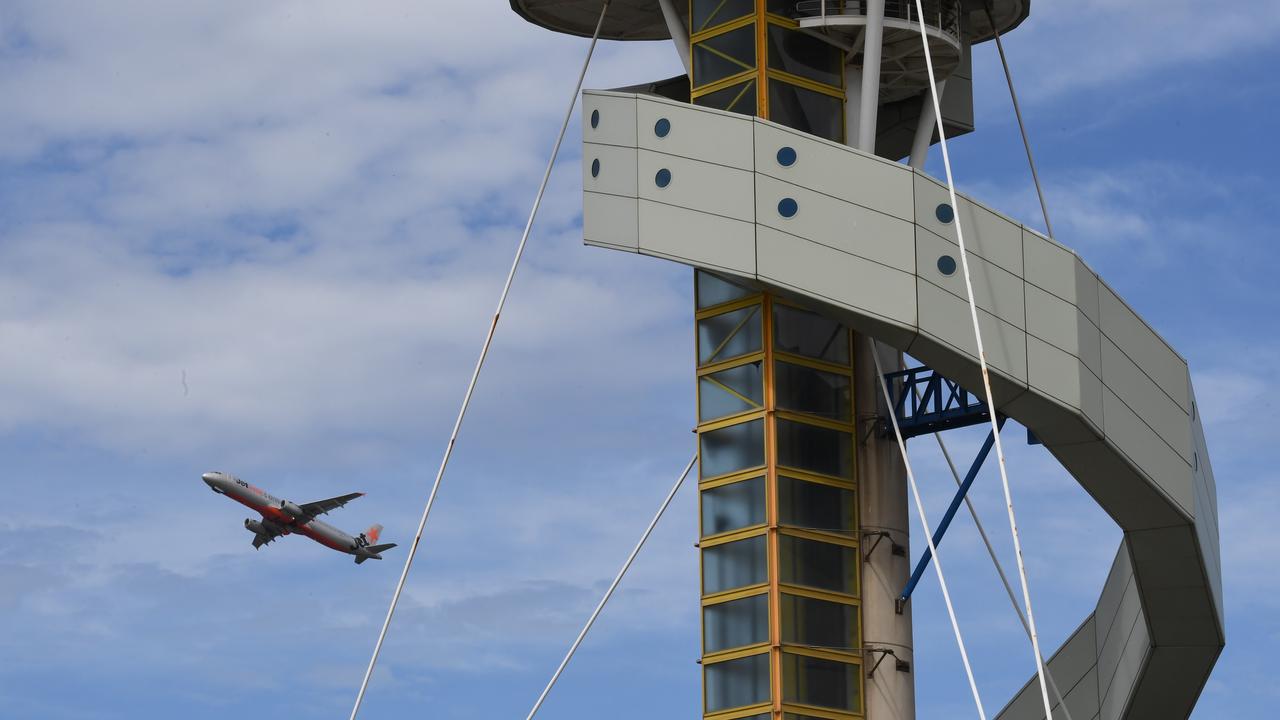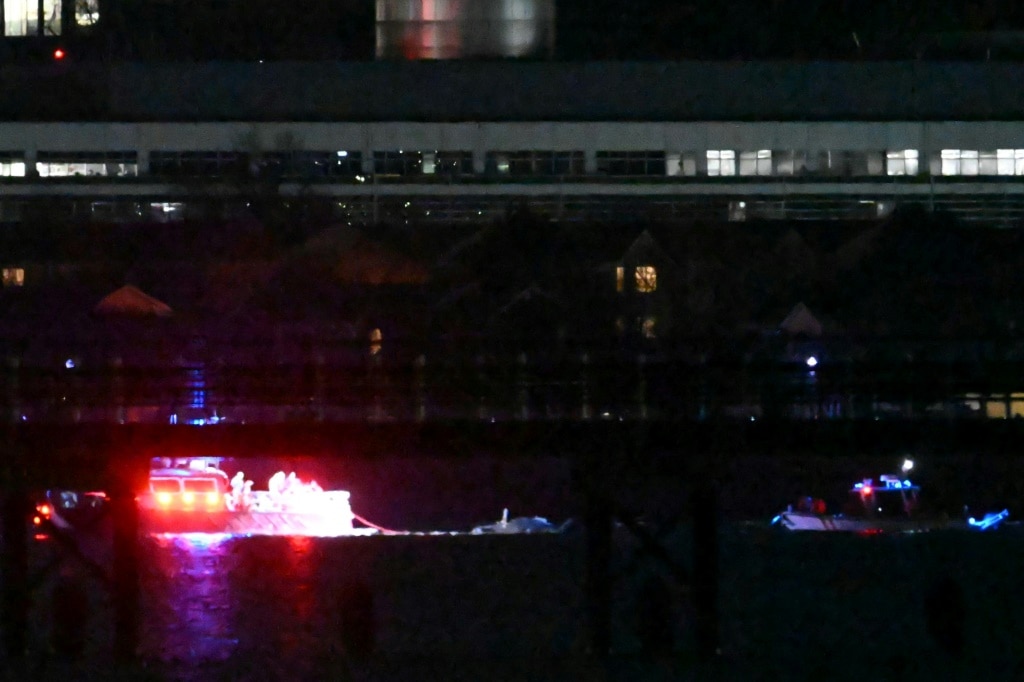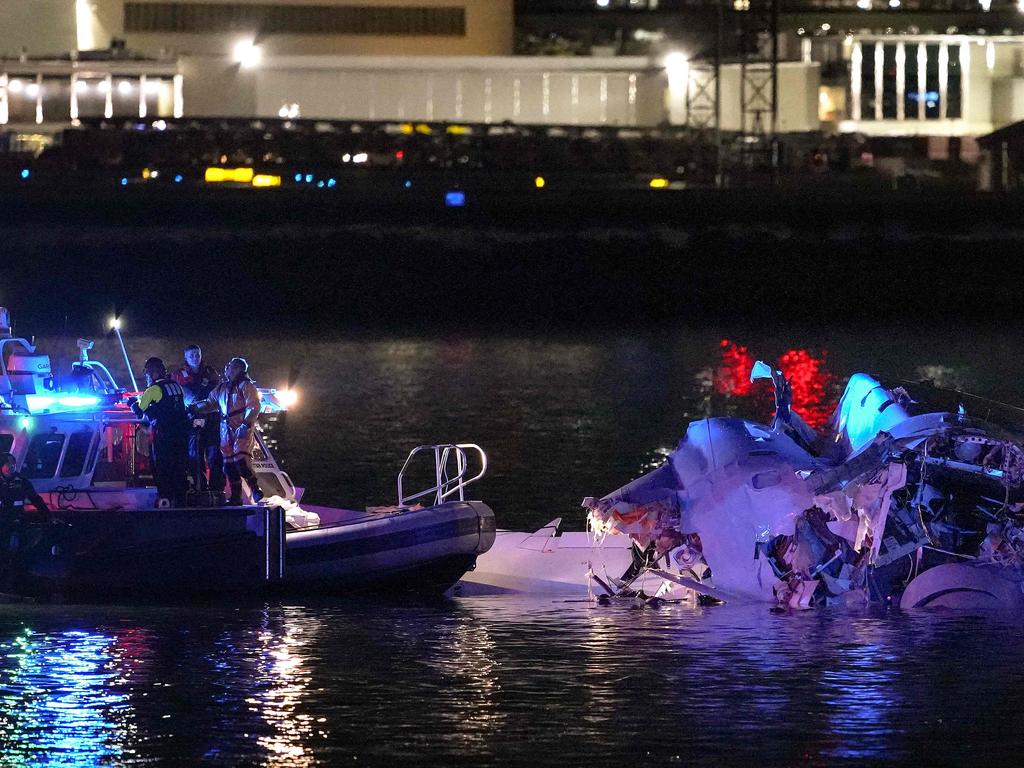Australian air traffic controllers urge Airservices to learn from Washington tragedy
The Washington mid-air crash has highlighted the importance of well-staffed air traffic control towers, says Australian air traffic controllers union.
Business
Don't miss out on the headlines from Business. Followed categories will be added to My News.
Australian air traffic controllers have urged Airservices Australia to learn from the Washington crash, particularly with regards to staffing of airport control towers, and fatigue management.
The union representing air traffic controllers, Civil Air, has been in contact with their US counterpart NATCA, to express sympathy and concern about the mid-air collision.
Hours after the shocking crash between an American Airlines’ regional aircraft and a US military helicopter at Reagan Airport, the Federal Aviation Administration noted the air traffic control tower was understaffed by up to a third below targeted levels.
It was unclear as yet whether that contributed to the tragedy, with an air traffic control source suggesting it was not unusual for one controller to deal with both helicopters and jets.
Air traffic control communications revealed the helicopter was told to “go behind” the incoming Bombardier CRJ700 as it approached the runway.
However it continued to fly into the path of the CRJ, prompting speculation the pilot may have believed the controller was referring to another aircraft approaching the airport, which has three runways.
The Blackhawk and jet collided, sending both into the icy Potomac River, triggering a major search and rescue operation throughout the night.
No survivors were found with all 64 passengers and crew on the American Airlines’ flight and three soldiers on board the Blackhawk presumed dead.
Communications between the two aircraft and air traffic control were expected to be the focus of the National Transportation Safety Board’s investigation into the collision, which occurred 5km from the White House

Civil Air president Scott Nugent said it was of the utmost importance the investigation was allowed to play out to its completion “without premature or unjust inference being drawn against the individual involved”. He said air traffic controllers were “highly trained, dedicated and professional individuals committed to the highest standards of air safety at all times”.
“Locally, Civil Air has been on the record for many years now, including to the air navigation provider Airservices and the Civil Aviation Safety Authority, about the chronic shortage of air traffic controllers that not only has an unquestionable affect on the efficiency in Australia’s aviation network but in our view may lead to reduced safety margins when air traffic controllers are asked to handle more traffic with less people,” he said.
“Civil Air will continue in its efforts to advocate for improved staffing, safety and culture.”
Airservices declined to comment in relation to the Washington tragedy.
A spate of mid-air crashes in Australian airspace in recent years all occurred in uncontrolled airspace where pilots relied on radio communications with each other to maintain separation.
Following a collision at Mangalore that killed four people in February 2020, the Australian Transport Safety Bureau said it “supported enhancements to the Australian air traffic system”.
Since then there have been several other mid-air crashes, including at Sea World on the Gold Coast, Belimbla Park in Sydney’s southwest, and over Port Phillip Bay.
More Coverage
Originally published as Australian air traffic controllers urge Airservices to learn from Washington tragedy









